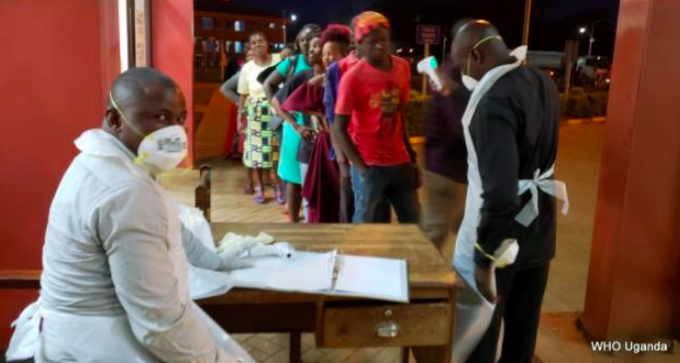Ugandan Local Governments, The Driving Force Behind The COVID-19 Response
As the Government of Uganda prepares to counter the threat of COVID-19, local governments feature prominently in the overall national preparedness plan. The government has approved a supplementary budget of UGX304.5 billion (approximately US$80 million) to combat the COVID-19 pandemic, with local governments and the Kampala City Council Authority (KCCA) receiving UGX66 billion (approximately US$16 million).
Local governments are the driving force to shape and deliver local response measures. The Presidential decree on COVID-19 recognized them as essential services that must continue along with healthcare and security. District taskforces are responsible for case management, surveillance, health promotion, resource mobilization and enforcement of control measures as well as for continued delivery of basic services. As central government has started food distribution to vulnerable groups, local governments play an important role in vulnerability profiling and mapping, identification of the beneficiaries and ensuring orderly and safe food distribution.
The country’s capital, Kampala managed by the Kampala Capital City Authority (KCCA) is expected to be the most affected area by COVID-19, both in terms of scale of infection and intervention. The KCCA is involved in surveillance, case detection, case management, enforcement of control measures in the wider Kampala population, risk communication and social mobilisation. Upgrade of water and sanitation systems is another important responsibility entrusted to local governments as part of the COVID-19 response. This problem is particularly acute in Kampala’s informal settlements, which are home to over 60% of the total urban population. Squalid conditions and poor hygiene present great risks and may complicate the epidemiologic situation.
This is also true for refugee settlements. Home to 1.4 million refugees, primarily from neighbouring South Sudan and the Democratic Republic of the Congo, Uganda hosts the largest refugee population in Africa. With 52 coronavirus cases detected across the country thus far, there is growing alarm over the virus taking hold among Uganda's large refugee population - with devastating consequences. 13 refugee hosting district councils across the country play a critical role in delivering health information to the most remote refugee communities and equipping the settlements with additional water points and handwashing stations to improve hygiene.
In close cooperation with the Ministry of Local Government of Uganda, UNCDF is working through its flagship area-based development programme called the Development Initiative for Northern Uganda to establish a system of operational expenditure block grants (OEBG) as a top up to the Local Government Excellence Fund (LGEF), a discretionary grant mechanism for local governments. An initial amount of US$400,000 has been earmarked to support 18 local governments in the northern part of the country.
The new grant designed to support the COVID-19 emergency reponse by local governments uses the same allocation formula as the original LGEF grants (constant share 10%, population share 85% and area share 5%). OEBG are supposed to be used in four areas:
- Small community infrastructure: handwashing stations, water points, extension of water supply, etc.
- Retrofitting public infrastructure: conversion of existing facilities into shelters, quarantine facilities, office/living space for additional civil servants to be deployed, retrofitting public markets, etc.
- Public awareness and enforcement: outreach activities, dissemination of public information, inspections, etc.
- Purchase of protective equipment for LGs: sanitizers, masks, gloves, etc.
UNCDF is part of the UN Humanitarian Appeal in Uganda, which is planned to be launched on 14 April. Together with UNDP, UNCDF is responsible for Theme 6: Economic Support & Digital Innovation. With a budget of US$15 million, this theme recognizes the importance of fast effective local action and content to slow the spread of the virus. UNCDF intends to support local governments to re-programme local budgets, minimize own source revenue losses, and create fiscal space for local COVID-19 response through flexible discretionary finance and public-private initiatives.
Download the UN Humanitarian appeal.
